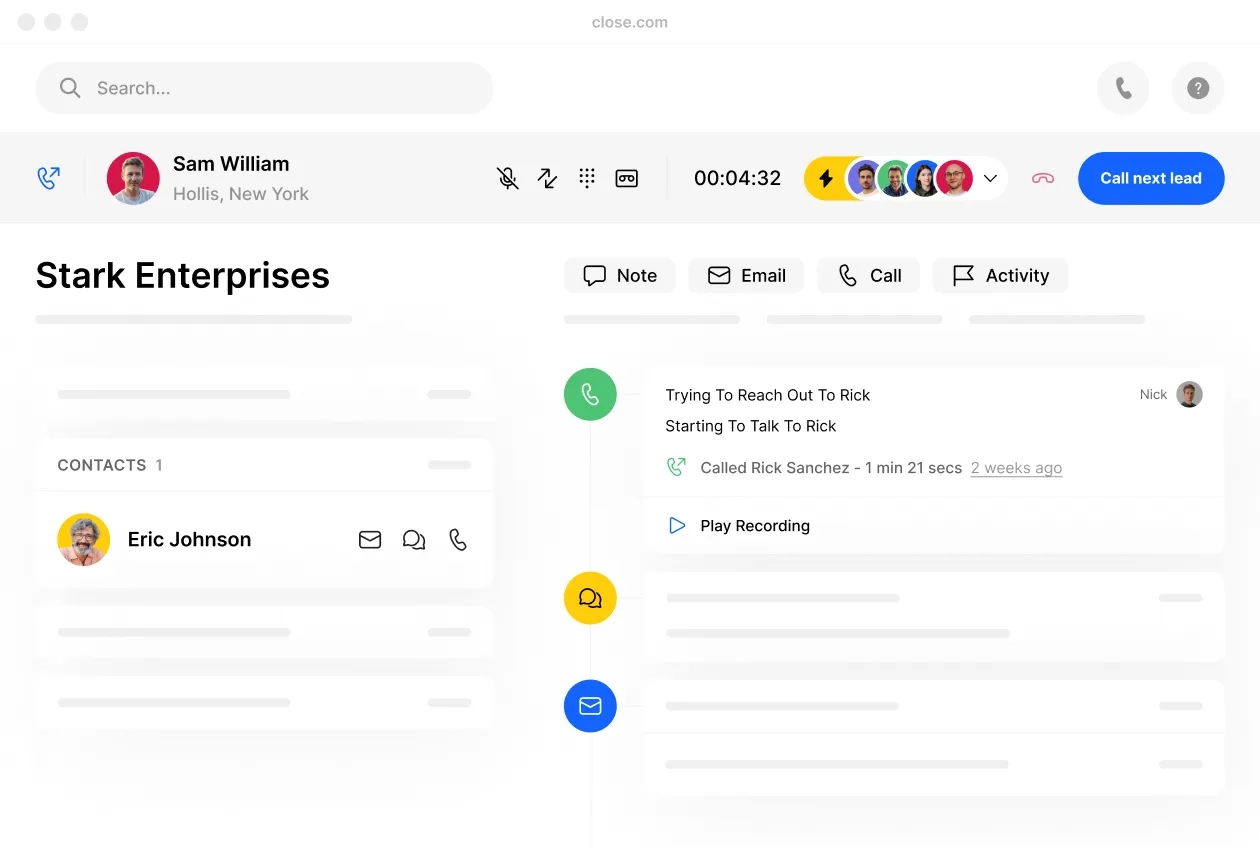How often do you conduct sales call reviews? Once a week? Once a month? Take a moment to answer that question.
As the sales manager, your job is to stay on top of the performance of your sales reps. That includes doing regular call reviews. Whether it’s a qualifying call, demo, or sales call—call reviews are part of the deal.
In this post, we will look at how to approach a call review with your junior sales reps.
Let’s start.
7 Factors to Evaluate During Sales Call Reviews
When it comes to call reviews, many sales managers provide emotional rather than strategic feedback.
Set your emotions aside and start judging your junior sales reps based on the seven attributes listed below.
Furthermore, effective sales call reviews are pivotal in shaping the growth of individual sales representatives and the entire sales team. By focusing on these essential factors during call evaluations, you can foster a culture of continuous improvement and drive higher performance levels.
In addition to evaluating the seven attributes mentioned earlier, it's crucial to provide constructive feedback highlighting areas of strength and opportunities for development. To learn more about delivering impactful feedback, explore our guide on sales call notes.
1. The Goal
Every call should have a specific goal.
Start the call review by asking your junior rep what they’re trying to accomplish with the call—what’s the goal?
Then, at the end of the call, ask, “Was this goal accomplished?”
Simple.
During the call, there might have been 1000 things you didn’t like. That doesn’t matter. The call was successful as long as the goal was accomplished.
On the flip side, you might have loved the call because it had a creative approach, and the conversation was flowing. But ultimately, the call was a failure if the goal wasn’t accomplished.
It’s a two-way street.
During the call review, listen to more than just your rep. Listen to the prospect or customer on the other end as well.
Pay attention to the following:
- How engaged are they?
- When do they lose interest?
- What’s their energy like?
- Do they seem understood?
Look at the interaction between your sales rep and the prospect—not just what your sales rep does.

2. The Sales Pitch
Delivering an irresistible sales pitch is no easy task. Your junior rep will likely require a lot of feedback on how to do this.
Start by breaking the pitch into three parts: beginning, middle, and end. Next, analyze how well your rep navigates through each part for the type of sales call they’re doing.
Here are a few questions to keep in mind:
- How well did your rep follow the structure of the sales pitch?
- How well were they able to deliver the sales script?
Look at this sales pitch guide if you don’t have a sales script.
3. The Facts
Many sales reps will bend the truth. They might not even do it on purpose, but it always happens. Sadly, many salespeople will lie straight up to close a deal.
Here’s what to ask:
- Did they say incorrect things?
- Did they hide from things they thought would cause an obstacle?
- Did they promise things that aren’t necessarily true but very unrealistic?
Remember, honesty is the best policy. It’s your job to ensure that your sales reps are honest, truthful, and stick to the facts.
4. The Confidence
Confidence goes a long way in sales.
You’re training your sales reps in certain things that they should be confident in and show improvement. Judge them on that confidence.
Ask the following questions:
- How confident does the rep feel with the script?
- Are they in control of the call?
- How well are they dealing with objections and other areas in which they’ve been trained?
Next, we’re going to take a look at a few intangible attributes. You don’t practice these daily, but you need to become truly great at sales: energy, connection, and listening skills.
5. The Energy
Keeping a consistent level of high energy is tough. Other people's energy influences us, and if someone’s not engaged, maintaining a consistent level of high energy is challenging.
Here’s what to look out for:
- Are your reps in control of their energy or are they influenced by the prospect?
- Could you tell that they were having fun?
- Could you hear them smile?
6. The Connection
People buy from people they like. If your prospect likes the sales rep, the deal is more likely to close.
Here’s what to judge your reps on:
- What’s the level of rapport?
- Did the salesperson and the prospect connect in a way that made them like each other?
7. Their Listening Skills

Being great at sales is not about talking but being a great listener.
Pay attention to these things:
- Did the salesperson talk more than they listened?
- Did they interrupt the prospect?
- When the prospect provided incomplete information, did the rep realize it and actively try to get more answers?
Make sure your junior reps master the art of listening because that’s what great communication is truly about.
With these seven basic steps, you can successfully evaluate sales calls with your junior reps.
Want to make it even easier? Download our free template:






.jpg)





